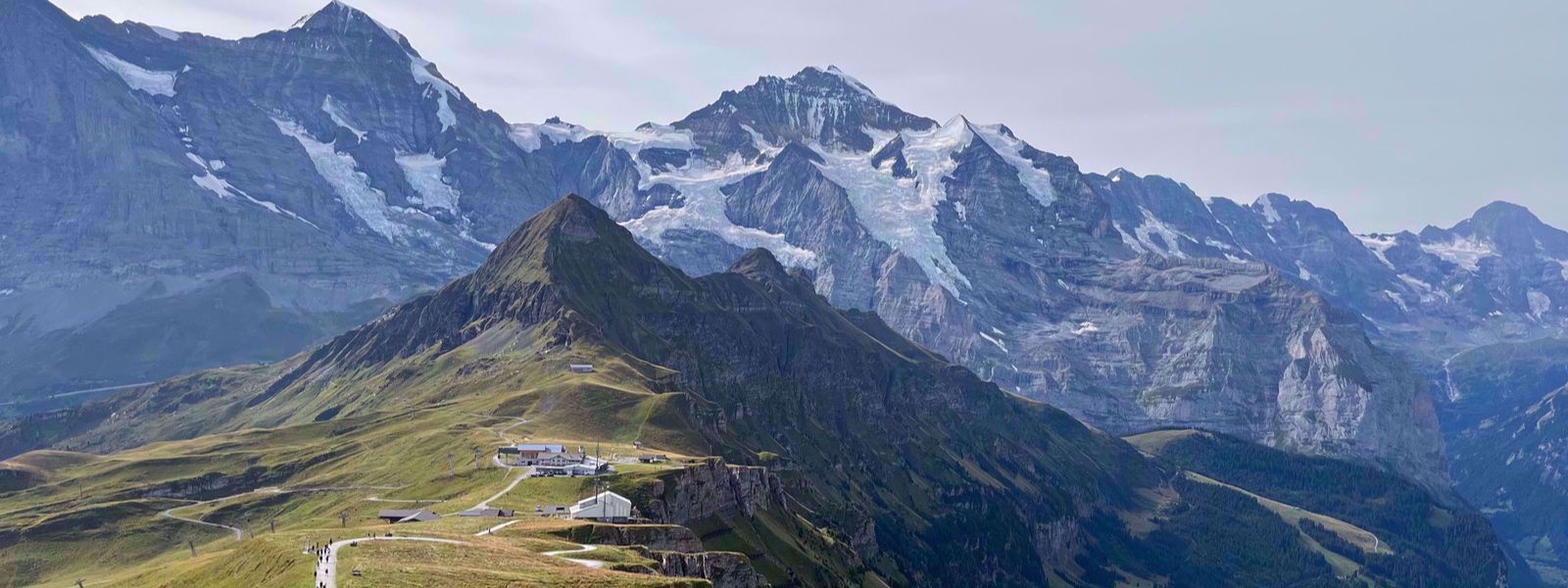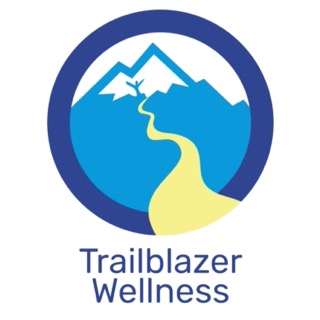If you’re dreaming of hiking the legendary Swiss Alps, investing the time to train before your trip will pay off as you make your way up their glaciated slopes. From the day hikes near Grindelwald and Zermatt, Switzerland, to the epic Tour du Mont Blanc, you’ll be singing your favorite Sound of Music songs as you soak up the views!
Of course, you know you should do some hiking to get ready. Here are 7 other ways to get in shape to hike the Alps that you may not have thought of before now!
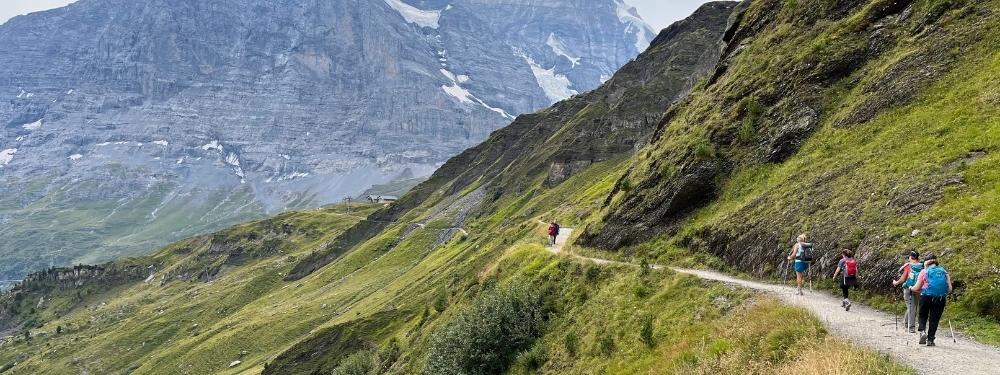
1. Take the stairs up, down, and sideways!
One of the best ways to get your legs conditioned for the dramatic uphill – and downhill – angles of the Alps is to take the stairs. Skip the elevator and walk up, and also walk down, which uses your leg muscles differently.
Plus periodically do a flight sideways – face the handrail and step up with your foot parallel to the stair. Then go down sideways too. The sideways steps help your hips gain mobility and strength.
Start with a few flights in each direction, a couple of times per week. Add one flight in each direction per week. If you live in the flatlands, add a third time per week.
If you don’t have stairs at home or work, try a local stadium (high school or county fairgrounds) or historic building that was built before elevators.
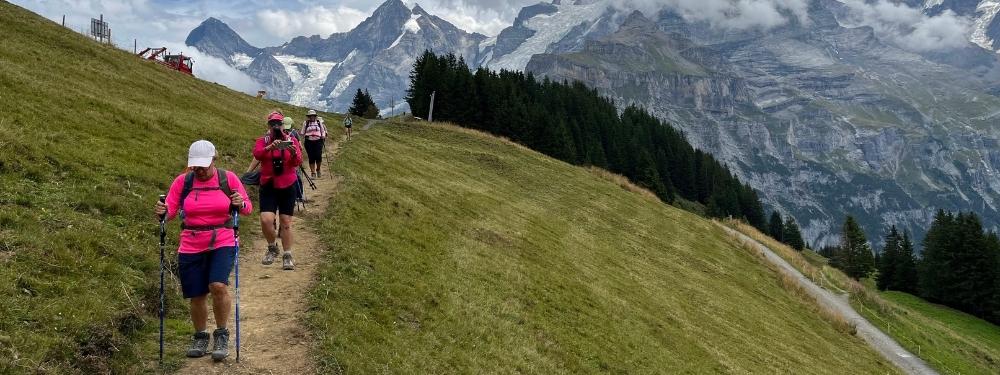
2. Reinforce your core.
Wearing a backpack, changing directions on switchbacks, and swiveling to take in jaw-dropping views engage the muscles between your ribcage and your glutes. The stronger your abdominals, obliques, and lower back are, the better you’ll navigate the twists and turns.
Just a few core-focused exercises a couple of days a week make a difference. And you don’t need weights or machines – just using your backpack works great!
One simple and super practical exercise is lunge-stance twists. Put on your backpack with some weight in it, and step forward into a stable lunge stance. Rotate your torso toward the hip of your front leg, then rotate back to face front. Aim for 15-20 twists on one side, then switch your front leg and do it in the other direction.
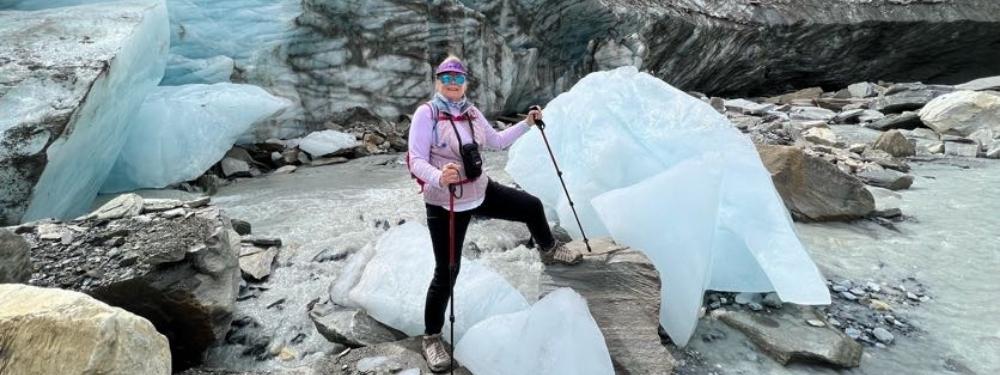
3. Practice with your trekking poles.
If you don’t already use trekking poles when you hike, you may want to consider using them for hiking in the Alps. They can help you conserve leg energy, reduce the impact on your joints, and feel more stable (as if you had four legs!).
For some people, using trekking poles takes some practice. The first few times, take a familiar trail so you can focus on the cadence and pole placement. When you’re more comfortable, tackle some tougher hikes with more elevation change, stream crossings, and/or other obstacles.
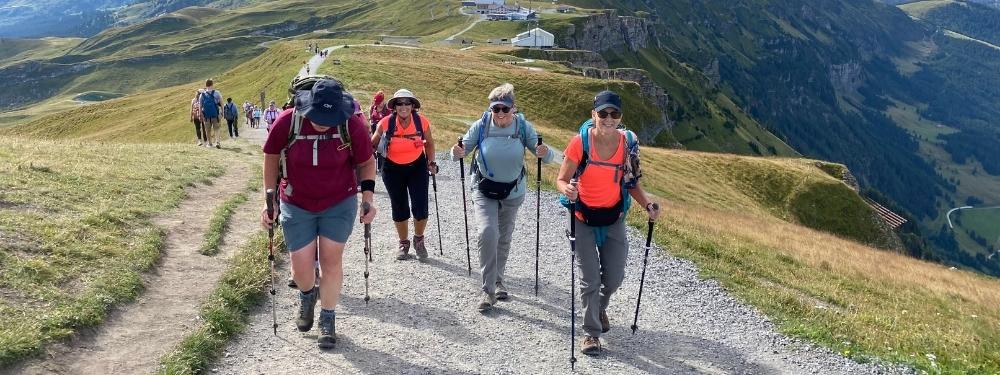
4. Increase your upper body strength.
Adding some upper body exercises to your fitness routine will help you with lifting and carrying your pack, as well as improve your efficiency with using trekking poles (as mentioned above).
You can use your pack to build your upper body strength with a few functional exercises. The most basic is lifting your pack, the precursor for putting it on your back.
Start with a light load in your pack, bend your knees, grab the shoulder straps and lift it up to chest height. Slowly lower it back to the ground. Repeat the motion 10-15 times. If that’s pretty easy, add more weight to the pack.
To increase your shoulder strength, hold your pack with the back panel parallel to the floor at chest height. Press it up overhead, then lower it back down to chest height.
Here’s a full-body workout you can do using your backpack.
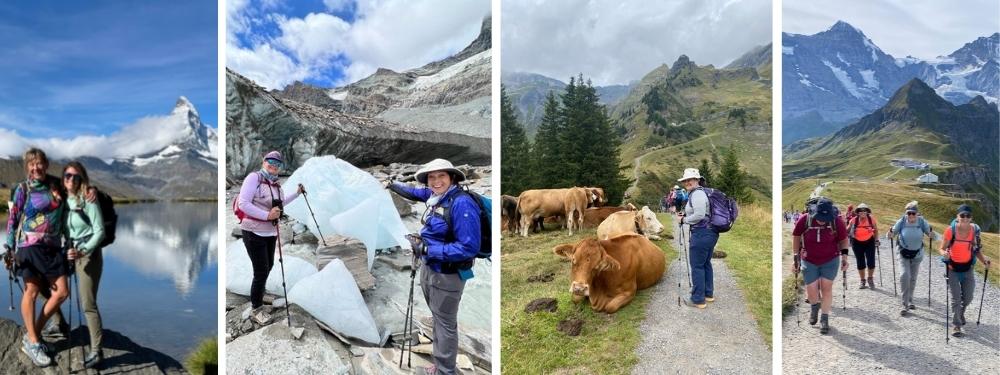
5. Try some tricky terrain.
The varied terrain of the Alps can pose mental challenges even for experienced hikers. Chances are you’ll be hiking at least part of the time above tree line (the altitude where trees don’t grow), and you may encounter dramatically exposed drop-offs that induce vertigo for some people.
Going on local hikes that have some tricky terrain, such as rock outcroppings or cliffs, may help you gain confidence and comfort. Stay safe, of course, just expose yourself to different conditions.
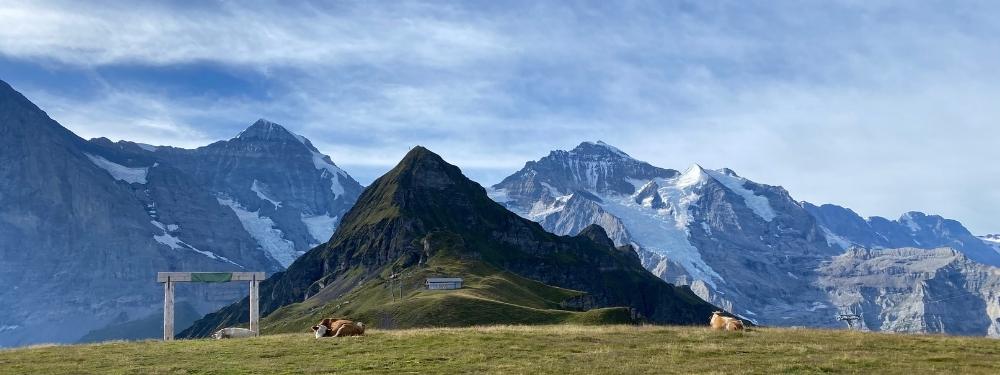
6. Be kind to your calves.
Steep inclines can be calf killers. The good news is, it’s easy to add calf exercises into your everyday life! Standing in line at the grocery store, in the shower, or while you’re on the phone, just raise your heels and hold for a few seconds on the balls of your feet!
For variety and a bigger challenge, try different angles. Adjust your feet to a ballerina’s “first position” with heels together, and toes pointed out, then raise and lower. Or point your big toes together and heels apart for a pigeon-toed position and try it. Bend your knees a few degrees while you lift your heels to target slightly different muscle sets.
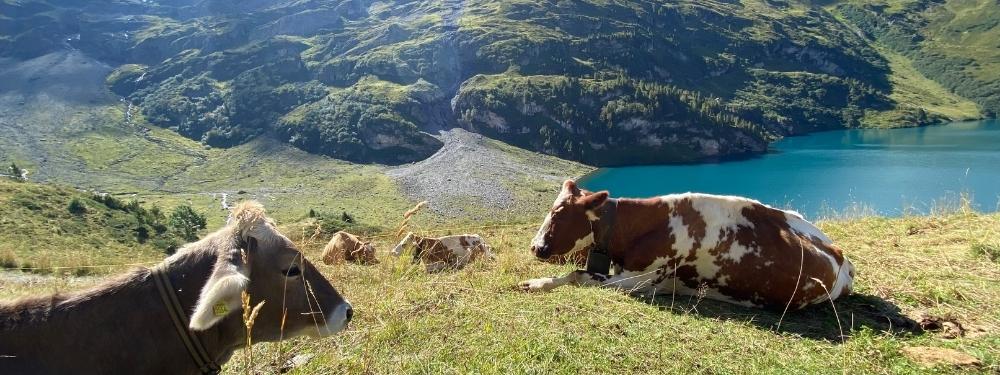
7. Challenge your balance.
Improving your balance is good for so many aspects of daily living, and is especially important for hiking. Rocks, roots, stream crossings, and other obstacles can throw us off kilter – and nobody wants to do a faceplant or sprain an ankle out in the Alps!
Add some balance challenges to your everyday life, and you may be surprised how much improvement you notice. Start with standing on one foot for as long as you can.
Try doing this on different surfaces – carpet, concrete, grass, gravel path. Do it while you brush your teeth, while you watch TV, and while you’re texting a friend. Up the ante and add your pack.
Incorporating these training elements to prepare for hiking in the Alps will not only improve your experience while you’re hiking in Switzerland. They’ll also set you up for success on other adventures on your list!
What is Trailblazer Wellness?
We are excited to announce our new partnership with Becki Rupp of Trailblazer Wellness! As a certified personal trainer and adventure coach, Becki offers support in preparing individuals physically and mentally for adventure travel, so that you can come home with amazing memories. Becki can help you build your strength, stamina, and confidence to make the most of your adventures and life!
Why should you consider a coach to prepare for an adventure trip? Not only will Becki guide you through preparing for activities on your travels, but you'll receive a customized training plan to get you ready for your adventure. Plus, through coaching sessions, you'll get all the support and motivation you could need during your pre-trip journey.
Learn more about coaching programs available through Trailblazer Wellness and how to book a FREE 30-minute consultation here.

